Driving in Nigeria can be a test of patience and resilience, especially when you factor in the notorious traffic jams, pothole-riddled roads, and fluctuating fuel prices. However, with the right fuel-efficient driving tips, you can make your journeys more economical.
In this guide, you’ll discover some practical strategies to help you save fuel and money on Nigerian roads.
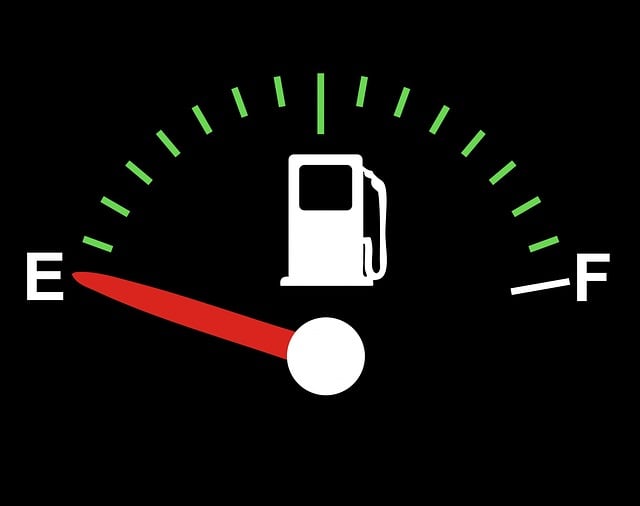
What To Know About Fuel Efficiency
Fuel efficiency is all about getting the most mileage out of every drop of fuel. It’s all about ensuring that you cover more distance without burning through your tank too quickly.
While some vehicles, like Toyota Camry and Corolla, are more fuel efficient than others, there are some fuel-efficient driving habits that can help you minimize wastage and maximize your fuel economy.
Why Fuel Efficiency Matters
Fuel efficiency isn’t just about saving a few extra nairas at the petrol station. It’s about making smart choices that impact both your pocket and the planet. Here are reasons why fuel efficiency matters and why it should be a priority for every Nigerian driver:
a. It Helps To Save Cost
In a country where the cost of living is constantly on the rise, every naira spent counts. Fuel expenses can quickly eat into your budget, especially if you’re driving long distances or stuck in traffic for hours on end.
That said, by improving your vehicle’s fuel efficiency, you can significantly reduce your monthly petrol expenses, freeing up funds for other essential needs. Whether it’s putting food on the table, paying school fees, or saving for the future, saving money on fuel can make a tangible difference in the lives of many Nigerian vehicle owners.
b. It Has Environmental Benefits
Nigeria, like many other countries, is grappling with environmental challenges such as air pollution, deforestation, and climate change. Vehicle emissions, particularly from petrol and diesel engines, contribute to air pollution and greenhouse gas emissions, which can exacerbate these environmental issues.
You can, however, contribute to sustainable environmental practice by driving fuel-efficient vehicles and adopting eco-friendly driving habits. Lower fuel consumption means fewer carbon emissions, which translates to cleaner air, healthier ecosystems, and a brighter future for generations to come.
c. It Helps To Promote Energy Security
Nigeria, despite being a major oil-producing nation, faces challenges in ensuring energy security for its citizens. Fuel shortages, blackouts, and electricity rationing are all too familiar occurrences in many parts of the country.
That said, when we focus on improving fuel efficiency and reducing fuel consumption, we can alleviate pressure on the country’s energy infrastructure and enhance energy security for all Nigerians.
Moreover, promoting alternative fuels and technologies, such as electric vehicles and renewable energy sources, can help diversify the energy mix and reduce reliance on finite fossil fuels.
d. It Contributes to Health and Well-being
The health impacts of air pollution are well-documented, with exposure to pollutants linked to respiratory diseases, cardiovascular problems, and other health issues.
In Nigeria, where air quality standards are often exceeded in major cities, addressing vehicle emissions is crucial for safeguarding public health and well-being.
When you drive fuel-efficient vehicles and reduce emissions, you can improve air quality, reduce the prevalence of respiratory ailments, and enhance the overall quality of life for millions of Nigerians.
Investing in clean transportation infrastructure and promoting sustainable mobility solutions can create healthier and more livable cities for future generations.
Now that we’ve got the basics down, let’s look into some practical tips to boost your fuel efficiency on Nigerian roads.
Fuel-efficient Driving Tips for Nigerian Roads
Here are some practical strategies to help you become a more fuel-efficient driver:
1. Maintain a Steady Speed

First, note that constantly speeding up and slowing down not only burns through fuel but also increases wear and tear on your vehicle’s engine and brakes. When you accelerate, the engine has to work extra hard to get you up to speed. This requires more fuel.
Similarly, braking throws away all that built-up speed, forcing you to re-accelerate and burn more fuel again. To conserve fuel, try to maintain a steady speed whenever possible, especially on highways and open roads.
You can use cruise control if your vehicle is equipped with it to help maintain a consistent pace. The truth is, when you drive at a steady speed, you can optimize fuel efficiency and reduce unnecessary fuel consumption.
| Related: See the faster between Audi and Mercedes Car?
2. Lighten the Load
Secondly, carrying excess weight in your vehicle can have a significant impact on fuel consumption, especially during stop-and-go driving conditions. To ensure fuel efficiency, take some time to declutter your vehicle and remove any unnecessary items that add extra weight.
Also, avoid using your car as a storage locker and only carry essentials with you on your journeys. Additionally, consider removing roof racks, bike carriers, or any other bulky attachments when not in use, as they can increase aerodynamic drag and decrease fuel efficiency.
3. Plan Your Routes Wisely
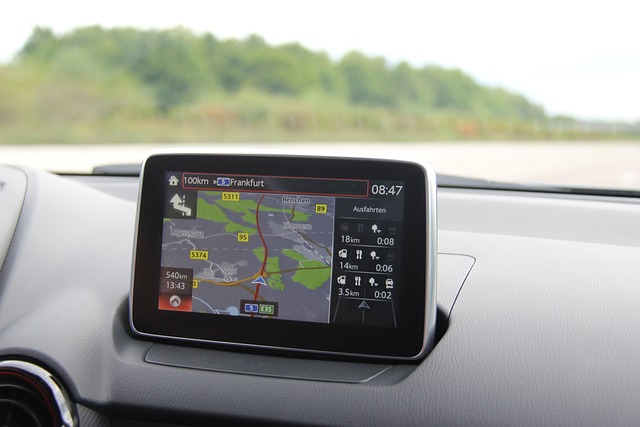
Driving through Nigerian roads can be a bit of a maze, with congested routes, road closures, and unexpected detours at every turn. To minimize fuel consumption and maximize efficiency, take some time to plan your routes in advance.
Use navigation apps or online maps to identify the most fuel-efficient routes to your destination, taking into account factors such as traffic conditions, road closures, and construction zones.
Avoid unnecessary detours and congested routes whenever possible, as they can increase fuel consumption and prolong your journey.
That said, make sure you check out some must-have car accessories for Nigerian drivers.
4. Keep Your Vehicle Well-maintained
A well-maintained vehicle operates more efficiently and consumes less fuel than one that is neglected. Regular maintenance checks and servicing are essential for optimizing fuel efficiency and prolonging the life of your vehicle.
That said, make sure to follow the manufacturer’s recommended maintenance schedule for your vehicle and address any issues or concerns promptly.
Pay particular attention to crucial components such as the engine, tires, brakes, and air filters, as they can have a significant impact on fuel consumption.
Additionally, ensure that your tires are properly inflated, as underinflated tires can increase rolling resistance and decrease fuel efficiency. Imagine a flat or underinflated tire touching the road.
The entire surface area is constantly making contact, creating significant friction between the rubber and the asphalt.
This friction is called rolling resistance. It acts like a constant drag on your car, requiring the engine to work harder and burn more fuel to overcome it.
5. Drive Smoothly
Aggressive driving habits, such as rapid acceleration and harsh braking, can significantly reduce fuel efficiency and increase fuel consumption. Aggressive driving involves a lot of rapid acceleration, which forces the engine to work much harder.
It gulps in more fuel to quickly increase the engine’s RPMs (rotations per minute) to propel the car forward faster. This sudden surge in activity burns a lot of fuel in a short period.
To conserve fuel, try to drive as smoothly as possible, using gentle acceleration and braking techniques.
Anticipate traffic flow and road conditions ahead to adjust your speed accordingly and avoid unnecessary stops and starts. If you drive smoothly, it’ll impact your fuel efficiency and reduce fuel consumption, ultimately saving money at the pump.
6. Turn off the Engine When Idle
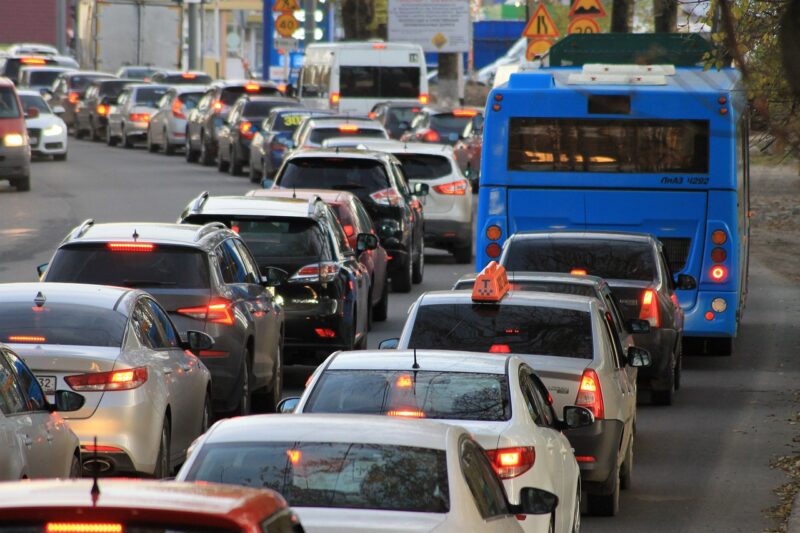
Idling seems counterintuitive because a car isn’t going anywhere, so it might seem like it shouldn’t be using fuel. However, even though the car isn’t moving, the engine is still running, and this requires fuel for several reasons.
The engine needs a constant supply of fuel to keep its internal components moving, like pistons, valves, and the oil pump. These components are crucial for maintaining proper lubrication and cooling, even when the car isn’t in motion.
Even when idling, various electrical components like the radio, air conditioning, or lights might be drawing power. This power comes from the alternator, which is driven by the engine, indirectly requiring fuel consumption.
So avoid unnecessary idling or stand still traffic (hold up) whenever possible. Of course, stand still traffic is a common occurence on many Nigerian roads, especially in Lagos. If you use a navigation system, you can avoid it to an extent.
Moreover, If you anticipate waiting for more than a minute, such as at traffic lights, railway crossings, or drive-throughs, consider turning off the engine to save fuel. Modern engines are designed to restart quickly and efficiently, so the fuel savings from turning off the engine outweigh the minimal fuel consumption required for restarting.
7. Use Air Conditioning Wisely
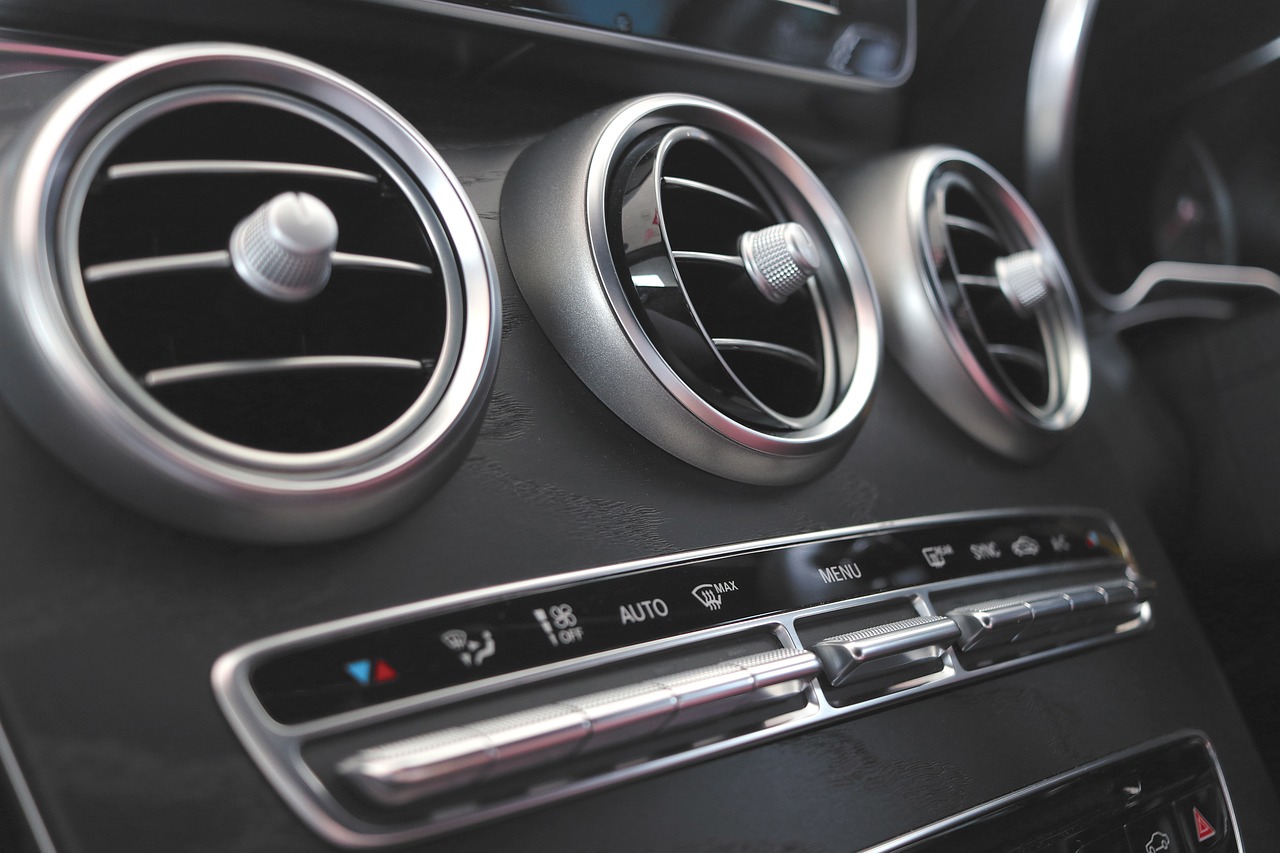
While air conditioning provides much-needed comfort in hot climates like Nigeria, it does come at a cost in terms of fuel efficiency. The core of the air conditioning system is the compressor. It’s a pump that pressurizes refrigerant, a special fluid, which then cools down as it expands.
This process of pressurizing and expanding the refrigerant requires significant energy, which the engine needs to provide. And, to generate the extra power needed for the compressor, the engine has to work harder.
This translates to burning more fuel to maintain the desired engine RPM (revolutions per minute) and overcome the additional load.
That said, to maximize fuel efficiency, use your air conditioning system wisely and avoid running it at full blast unnecessarily. Consider using the vehicle’s ventilation system or opening the windows to cool down the cabin before resorting to air conditioning.
Additionally, park in shaded areas whenever possible to reduce the need for cooling and minimize the strain on your air conditioning system. This is another way of which you can conserve fuel and reduce fuel consumption without sacrificing comfort.
8. Use the Right Gear
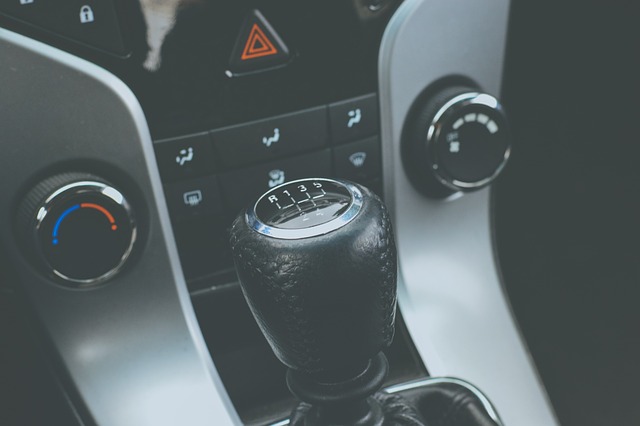
Using the right gear can have a significant impact on fuel efficiency, especially in manual transmission vehicles. Each gear in a manual transmission has a specific gear ratio. This ratio determines how many times the engine crankshaft rotates for every single rotation of the wheels.
Note that lower gears create a higher engine RPM for acceleration, while higher gears allow for lower engine RPM at cruising speeds. The engine has a specific RPM range where it operates most efficiently, often referred to as the “sweet spot.”
In this range, the engine burns fuel most effectively to create power. When you’re in a low gear (like 1st or 2nd), the engine revs high to provide the necessary power for acceleration. However, this high RPM operation is less efficient, and the engine burns more fuel per unit of power produced.
Conversely, using higher gears (like 4th or 5th) at cruising speeds keeps the engine RPM lower. This falls within the engine’s efficient operating range, where it burns less fuel to maintain the desired speed.
However, for automatic transmissions, they use a computer to select gears based on various factors, but they might not always prioritize fuel efficiency.
That said, shift up through the gears as soon as possible without laboring the engine, and avoid revving the engine unnecessarily. Use the highest gear possible for the speed and road conditions to minimize engine RPM and reduce fuel consumption.
Additionally, consider using overdrive or eco mode if your vehicle is equipped with it, as it can help optimize fuel efficiency and reduce fuel consumption without sacrificing performance.
Final Note
Monitoring your fuel consumption can help you identify trends and patterns in your driving behavior and make adjustments accordingly. Keep track of your fuel usage and mileage over time, and pay attention to factors such as driving conditions, routes, and vehicle maintenance.
Use this information to identify areas where you can improve fuel efficiency and make changes to your driving habits accordingly. When you monitor your fuel consumption and make adjustments as needed, you can optimize fuel efficiency and reduce fuel consumption over time.
So, the next time you hit the road, remember to maintain a steady speed, lighten the load, plan your routes wisely, keep your vehicle well-maintained, drive smoothly, and turn off the engine when idle.
